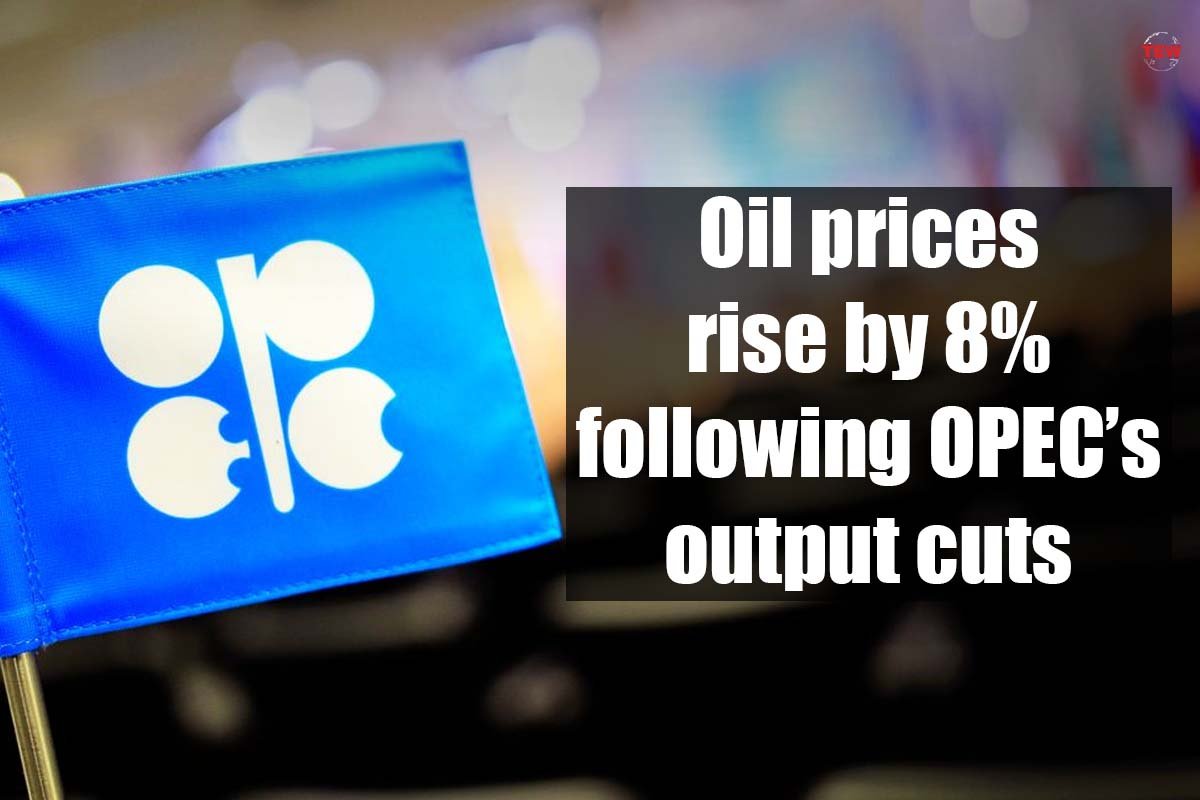Oil prices saw a significant surge at the start of this week after OPEC+ announced they would cut oil output by 1.16 million barrels per day. The voluntary cuts are set to begin in May, last until the end of 2023, and are aimed at stabilizing the oil market. Saudi Arabia, the OPEC kingpin, pledged to reduce 500,000 barrels per day, while the UAE announced a cut of 144,000 barrels per day. Other member states also made cutbacks, including Russia, which has decided to trim oil production by 500,000 barrels per day until the end of 2023.
What do Analysts Say?
As a result of the announcement, Brent crude futures jumped by 5.07% to $83.95 a barrel, while U.S. West Texas Intermediate crude futures soared 5.17% to $79.59 a barrel. Analysts believe that the plan for further production cuts by OPEC+ could push oil prices towards the $100 mark again, particularly in light of China’s reopening and Russia’s output cuts as a retaliation move against western sanctions.
However, CMC Markets’ analyst, Tina Teng, has noted that the cut could also reverse the decline in inflation, which would “complicate central banks’ rate decisions.” In October last year, the oil cartel announced its decision to cut output by two million barrels per day. The White House had expressed disappointment at that time, but this latest cut is being viewed more positively, as the momentum for global oil demand is up, rather than down, due to China’s strong recovery.
Goldman Sachs has suggested that this could lead to a $5 per barrel increase in Brent forecasts to $95 per barrel for December 2023. The surprise cut is consistent with OPEC+’s doctrine to act preemptively, according to analysts led by Daan Struyven from Goldman Sachs.
Should India worry about fuel prices after OPEC+ cuts daily oil output?
Lowest since 2021
Oil prices tumbled to their lowest level since December 2021 in March, as traders feared that the banking rout could dent global economic growth. The oil cartel and its allies are looking to avoid a repeat of the 2008 crash, in which oil prices crashed from $140 to $35 in just six months. While it is not his base case, Bob McNally, president of Rapidan Energy Group, has suggested that oil prices could make a dash for $100 if Chinese demand goes back up to 16 million barrels per day in the second half of this year, and if Russian supply starts to go off because of sanctions and other factors.
Source: CNBC





